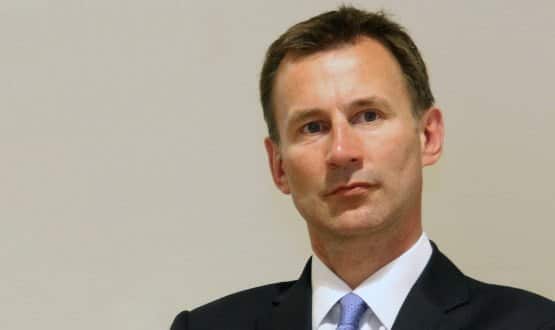The National Information Board’s new IT strategy shows that technology must act as a “pillar” to support the future of the NHS, health secretary Jeremy Hunt has said.
Hunt spoke at the King’s Fund annual conference in London yesterday, following the release of ‘Personalised Health and Care 2020’.
The document, which says it is “not a strategy in the conventional sense” but a “framework for action”, seeks to align NHS IT priorities with national policy priorities, and to strike a new balance between national and local action when it comes to IT procurement and development.
In his speech, Hunt described innovation and efficiency as one of “four pillars” underpinning the government’s plan for the NHS, with technology a crucial part of that.
“Innovation is not alien to the NHS: it has had more world firsts since its creation in 1948 than any other public health service… but that scientific innovation has not been matched by process innovation.”
Hunt said the proposals outlined in the NIB framework will help to deliver “personalised, 21st century healthcare for the whole NHS” and encourage it to move with the times.
“We need to change the NHS from a lumberingly slow adopter of new technology to a world-class showcase of what innovation can achieve.”
Proposals to create digital care records across primary urgent and emergency care by 2018, and across the whole health and care system by 2020, will allow patients to “only have to tell their story once” and ensure clinicians have instant access to the information they need, he added.
Hunt also said more joined-up care with shared health records will “unlock” personalised cures for illnesses, with Genomics England’s project to sequence 100,000 genomes an example of where technology can lead.
“We won’t do this through bureaucratic, top-down approaches, but by encouraging and diffusing local clinical innovation and harnessing the most powerful driving force of innovation you can have – the powerful of individual citizens who care about a better health system.”
Hunt also addressed concerns about data privacy, saying Dame Fiona Caldicott has been appointed as a national data guardian to act as a “patients’ champion”.
“If we lose the confidence of the public that their data is safe, none of this will be possible. We need to be robust in protecting patient data as we make use of the benefits of sharing it.”
Those benefits will include financial savings, Hunt claimed, citing examples of other industries that have adopted technological innovations.
“Banks have persuaded more than half of their customers to bank online, and in doing so they’ve cut their costs by an impressive 20%.”
A “compact” between national health organisations and healthcare providers must be developed, Hunt said, to make sure they “embrace innovation and efficiency” to help making the savings needed to bridge the £30 billion funding gap outlined in NHS England’s ‘Five Year Forward View.’
Tim Kelsey, NHS England’s director of patients and information, has told EHI that more detailed plans on the “method of delivery” for the proposals and targets are set to be released before Christmas.

